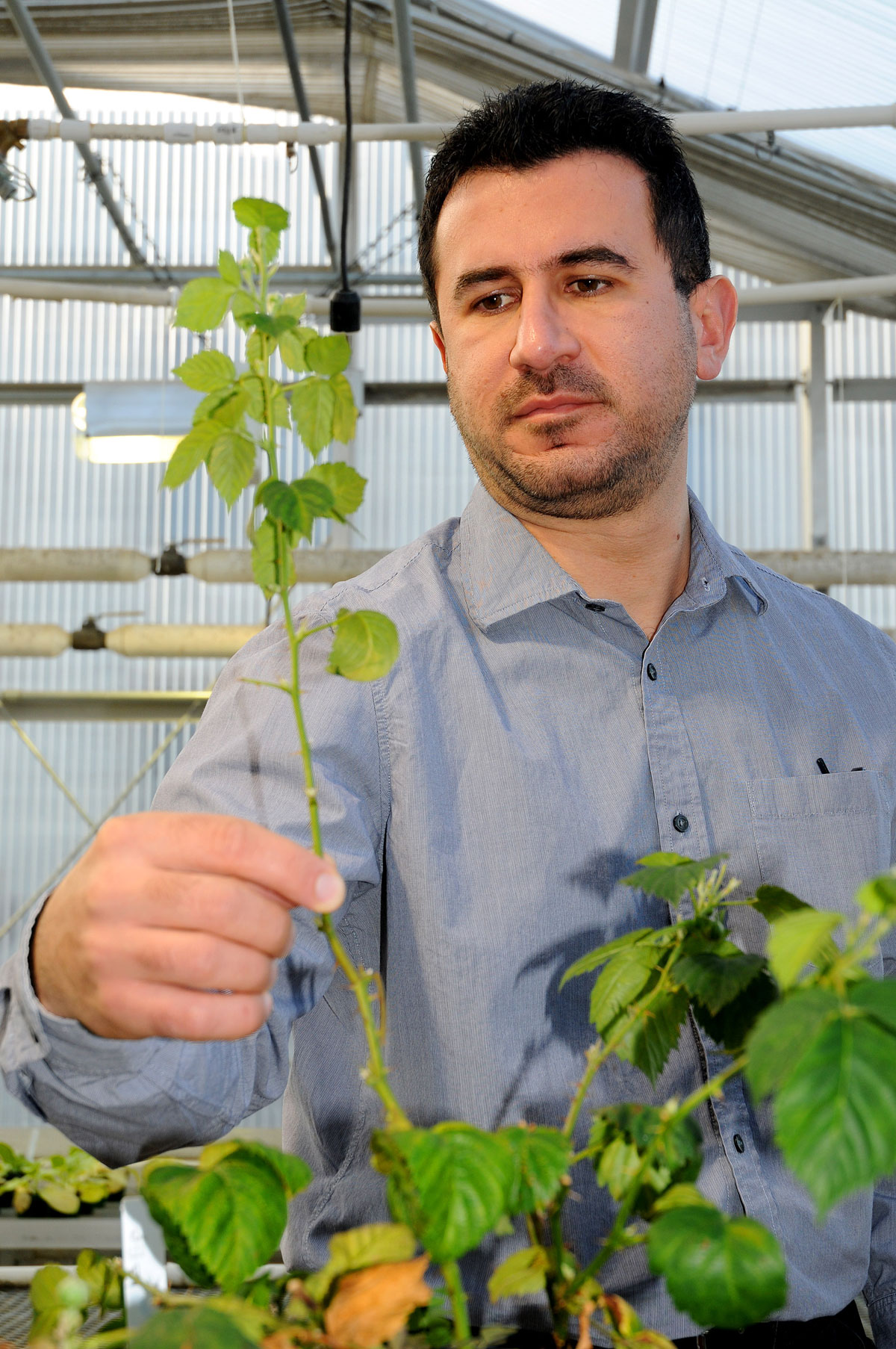
FAYETTEVILLE, Ark. – The University of Arkansas Division of Agriculture is providing a regional Clean Plant Center in the new National Clean Plant Network created by the U.S. Department of Agriculture to boost research in virus elimination and development of next generation detection methods for plant pathogens.
The National Clean Plant Network is a collaborative effort of the USDA’s Animal and Plant Health Inspection Service, Agricultural Research Service and National Institute for Food and Agriculture.
Ioannis Tzanetakis, U of A assistant professor of plant pathology, is coordinator of the Arkansas-based center, which will focus on berry crops. Two other centers for berry crops – strawberries, blueberries, cranberries and blackberries and other cane fruit – are at North Carolina State University and a USDA unit at Oregon State University. Other centers around the country work with grapes, tree fruits, citrus and hops.
Tzanetakis said plant nursery operators and their customers need improved methods of assuring that plants are free of plant disease pathogens. The Arkansas Clean Plant Center has a first-year budget of $230,000 from USDA for research to develop “next generation diagnostics” for detection of plant viruses, he said. The research grant is renewable for another three years.
Plant viruses are a major problem for nurseries because disease symptoms they may cause often do not appear until plants are in the field, Tzanetakis said. Better diagnostic tools will help solve that problem and will help eliminate viruses from advanced selections in breeding programs before they are released as new varieties, he said.
In addition to developing diagnostic tools using DNA and other technologies, Tzanetakis and his colleagues also investigate how the viruses are transmitted and how they interact with other pathogens. Disease symptoms often appear only when a plant is infected by several viruses or other pathogens, Tzanetakis said.
In another USDA project awarded to Tzanetakis for $160,000 for two years, a major effort is underway to develop national standards for blueberry and caneberry certification.
Unlike other countries, including those in the European Union, certification programs in the U.S. are state based. This has led to major problems for plant movement between state lines as well as internationally, delaying the dissemination of elite propagation material that would benefit growers, Tzanetakis said.
Rose Gergerich, U of A professor emeritus of plant pathology, is surveying nurseries about practices and plant disease concerns to help develop the framework for the national certification program.
Topics
Contacts
Howell Medders, Coordinator
AGCS
479-575-5647,